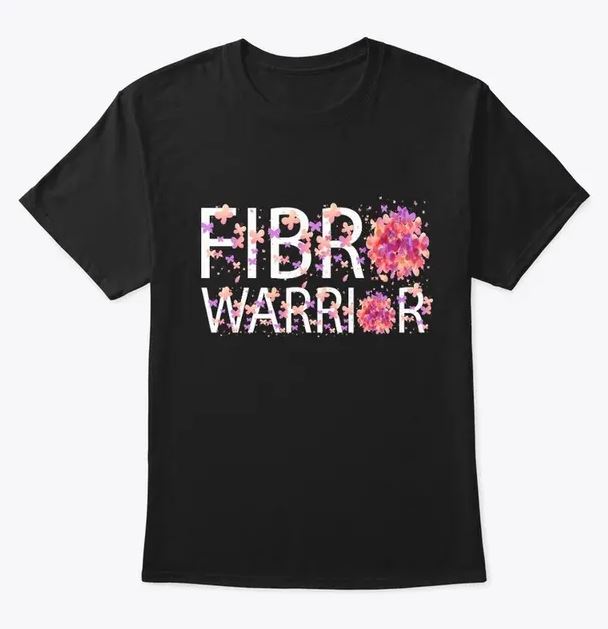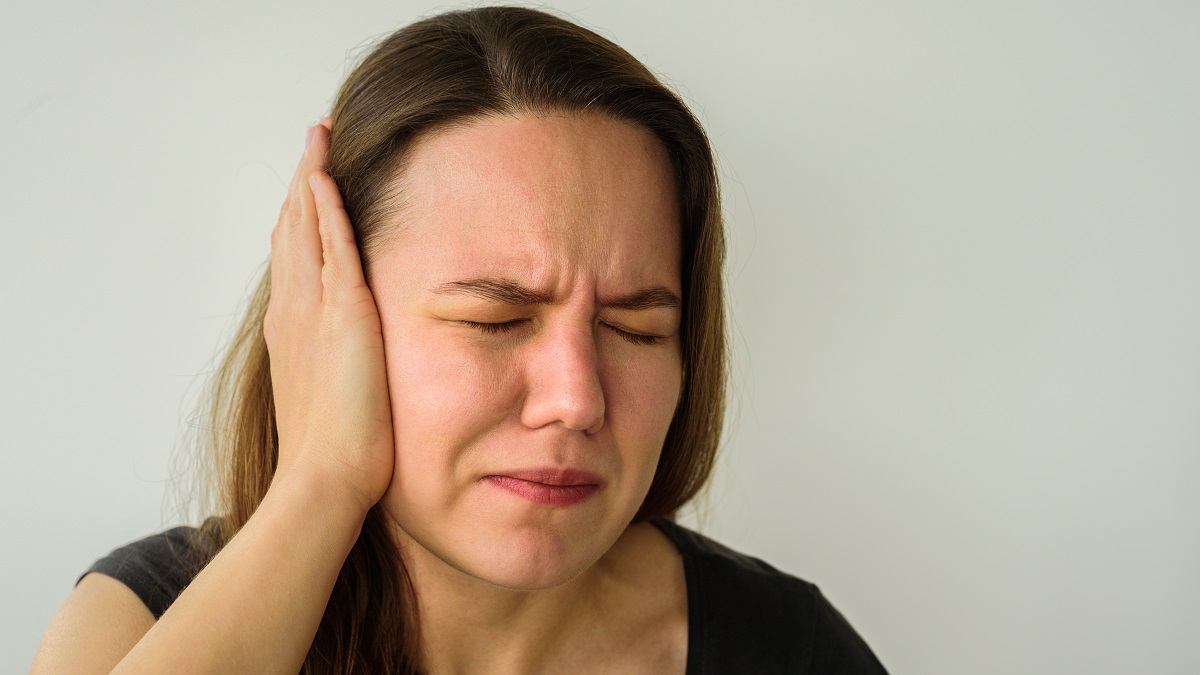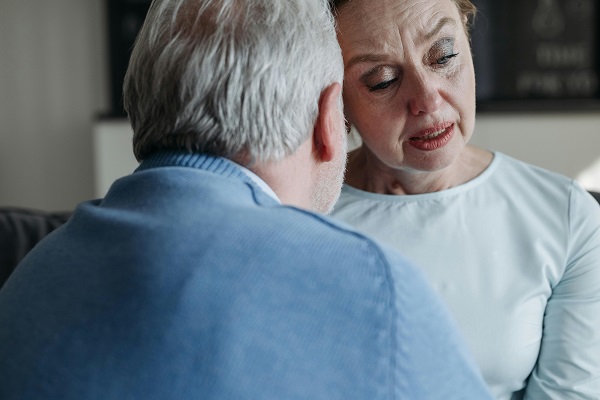This is a guest post from a fellow Fibromyalgia Warrior. Vicki tells us her journey with her mental health issues. In addition, we learn how hard it is to get diagnosed when you have fibromyalgia and then get appropriate treatment. Vicki tells us how the trauma in her life has exasperated her fibromyalgia and other ailments.
Vicki’s Road to fibromyalgia diagnosis
I was diagnosed almost a year and a half ago; after a year and a half of going to different doctors and saying, “I think I have fibromyalgia or Chronic Fatigue Syndrome, or both”. Most of them didn’t listen to me. My PCP didn’t diagnose either one.
It started with my legs swelling enormously after a plane trip to PA for camping. All through the trip, I was exhausted, working on schoolwork, and using a cane to get around. It’s not the first time the cane was needed.
Specialist
I already saw a neurologist for migraines and sleep apnea—so I was already using a CPAP but still falling asleep during the day. I was already seeing a Psychiatrist and Psychologist. They both thought that my medication regimen was fine. They sent me to see a nephrologist for the swelling in my legs (fine), a cardiologist (fine), a colo-rectal specialist to make sure there was no bleeding (fine), my gym (fine), and finally PT for lymphedema treatments (didn’t help).
Ultimately, I ended up having to sit in a recliner with my legs elevated still higher on pillows, still in incredible pain all over, I couldn’t put my legs down (and still can’t for the day) or they would swell. Finally, I had to wear compression stockings as well, and I bought my own TENS unit for pain. I got a prescription for a cane and a walker and started the process for disability. I finally got in to see a rheumatologist—the first available appointment was in 4 months.
Mental Health diagnosis
I was first diagnosed with depression and anxiety by my personal doctor (in a state I am not currently living in), in 2005, just after my mom died. I went to her because I was having difficulty coping with “work, school, and home”. She thought it was just short term and prescribed me some anti-anxiety med and something for depression.
When my (now) ex-husband found out about it, he threw the pills away and told me that I didn’t need them—that I just needed to straighten up my life. He was extremely abusive and suspicious of everything I did. So I started getting the medication filled at the hospital I worked at, and taking them at work (I kept them in my desk drawer). I would hide pills in my pocket to take on my way home from work in the morning. I couldn’t take them at home, because he would make me empty my pockets when I got home.
Trying to Work While Ill
I started having trouble keeping a job. I went to work as a travel nurse initially, so I had time to look around at the hospitals in the area, find out who was hiring and what was available. The travel assignment was working well for me, so I signed up for a second assignment with the same place…that’s when they started breaking small parts of the contract. Since I worked night shift, there was no one to talk to when it happened. The hospital felt vindicated because staffing was low.
I was floated to areas where I had no experience and given patients I should not have been taking care of. My company didn’t really stand up for me, but they were understanding. They told me just to break the contract without any repercussions, but they didn’t have any other assignments in the area. I took an interim job in a nursing home to cover the next three months.
Why medication alone doesn’t work
During that time, I was sick more often than not. My doctor said: “Your immune system is shot. You have been in fight or flight mode for too many years. Now your body doesn’t know how to behave.”, he had no other advice. I thought I’ll just have to live with it and get over it. He changed my psych meds and sent me for counseling which did help somewhat, but I never really connected with my counselor and I think it was too soon to talk about all the trauma I’d been through.
After being “unlawfully fired” from my next job, and collecting unemployment; I was also fired during my 90 day probationary period from the next job, while I was out under doctor’s orders. Since it was probation, they were allowed to fire me at will. At my next job, I was also frequently ill. I was working at a children’s hospital so I didn’t think too much about it.
Immune System Failing
That was the year I came down with H1N1 flu and almost ended up in the hospital with adult RSV (yeah, adults can get it), I had shingles (unusual at my age), found out I had thyroid disease (but not in-depth studies) and saw a cardiologist for the first time. You see, when I lived back on my own down in the other state, I respiratory arrested one night at work. My heart never stopped beating, but I stopped breathing—and came to in the ED with the code team working on me.
Everything was fine and nothing showed up. They observed me in the ED for the rest of the night and let me go home in the morning. When my current doctor heard about it he sent me to a cardio, and I went through all the testing and everything was fine. No one has ever found a reason for my sudden, almost dead.
The doctors decided that it must have been the start of my immune system rebelling. Even at the children’s hospital the Infectious disease specialist asked me if I had an immune deficiency and I told him not that I knew of. I had myself tested for HIV, and all the Hepatitis stuff just in case (due to my ex). Everything was clean. Of course, we were constantly changing my psych meds because it was very hard to control my anxiety and depression. I was diagnosed with PTSD in 2009.
How Fibromyalgia changed my life.
In so many ways! The first time I saw the rheumatologist he said I had a severe case of fibromyalgia. Severe? Did I start with severe? All 18 markers were positive. Sadly, I was already walking with a cane most of the time. In addition, I had already stopped working. I couldn’t go back to work until I had my health under control—I would miss too many days and be fired.
I can’t even plan for part-time or PRN nursing because they count on you, and I really can’t be counted on for any particular day. Everything makes me tired. Walking the 10 steps from the chair to the bathroom is an effort that wears me out. I can’t sleep flat on my back anymore, I have to sleep in the recliner. I’m incontinent at night. My right leg and right arm (dominant side) seem weaker to me. And they both go weirdly numb at odd times of the day for no reason.
I can’t wear jewelry because it just hurts. I have to wear loose and soft clothing because clothes hurt my skin. Taking a shower is horrendously painful because it feels like needles are hitting my body—like when you have a sunburn. Now, I don’t drive because of the medication I’m on, so I’m dependent on my husband. I can’t stand in the shower, so I have to have a chair. I get short of breath and tired easily. Getting dressed can be horrible. If I am wearing pants—my husband has to pull them up for me, very often. I’ve gained weight.
Loss of friendships due to my illness
I have a hard time concentrating on anything. I did finish my BSN and started my MSN—but it’s in teaching nursing; so, I can’t finish it. I can’t do the clinical portion. I’ve lost touch with friends. I’ve lost friends because I don’t have the same things to talk about. This makes me feel isolated and alone most of the time. I am angry that it has taken two years and two denials, and a hearing, and I still don’t have social security. They don’t see all of this as a disability. I am mostly afraid at how much worse this can get, and how it will change my husband and my lives. He is also disabled and considered unable to work per the VA.
Fibromyalgia flares
I still haven’t pinned down what puts me into flares, although they have become less frequent with time. I know that I have more flares when I am overstressed. Right now I have stopped taking classes for my second BA, and am just trying to relax. Otherwise, I have no idea.
I was exercising sporadically prior to my diagnosis. I did yoga occasionally and walked occasionally. I always got in at least 10,000 steps at work at night. I’ve been encouraged to exercise, but I can’t walk. I got a stationary bike (because I’m unstable on my feet), and I sometimes go to a friend’s house to swim. I can’t do yoga anymore because I can’t get on the ground (because my right leg doesn’t work right).
My Mental Health
Because of my PTSD, I am fearful of going alone places, I don’t like to be in crowds or with people I don’t know, I don’t answer the doorbell or when someone comes to the door (unless I know one of our friends is coming). I used to hide in a back room—but over the last 10 years that’s gotten better. I wouldn’t shower while my husband was away from home. I have to sleep in view the door no matter where we are and how many people are with us (camping). I still sleep poorly due to nightmares on a recurring basis about things that happened or could happen in this reality—and then sometimes dream him into parts of this reality he isn’t involved in.
When I was able to be very active (and when I was working—not that long ago) exercise did not help. Keeping myself from getting overtired DID though. A regular sleep schedule helped a lot. Meditation and breathing exercises to help with the anxiety helped as well. If things were particularly bad, I would do a reiki session on myself (I am a reiki master). I don’t know if diet helped—but moderating alcohol is always a good idea. Counseling helped once I found a female counselor who was able to work well with me.
When I am having a particularly bad flare, I find that my night-terrors and nightmares increase. My anxiety during the day does not seem to increase to me, but my current husband said it does (when I asked about this). When my depression is really bad, my pain is so much more noticeable. When one part of the system has a breakdown, the whole system has a breakdown. It is always true in life. When you have a cold—don’t you always feel awful all over, even if it’s only a head cold?
My Medications
I currently take Lyrica for my Fibro, which is relatively new. It is helping tremendously. I had to fire my rheumatologist to get Lyrica—he wouldn’t give it to me. I take it twice each day. I also take Methotrexate once a week, and Plaquenil once each day. I also take Baclofen as needed three times a day in graduated doses for muscle spasms and stiffness. Pilocarpine for dry mouth and eyes three times a day and I use drops in my eyes. I use Cannabis for pain control (sparingly).
Previously, I was on Plaquenil twice a day, Gabapentin three times a day, Pilocarpine three times a day, Baclofen 20mg three times a day (not as needed), Tylenol with Codeine for pain every 6 hours, drops for my eyes, Meyers Solution infusions once per week. I found out that the Meyers Solution was just the vitamins I was already taking and stopped them because insurance wouldn’t pay for that (and it was over $100 each infusion).
Side-effects of medication
I was started on Methotrexate pills once a week (what I’m on now). My “numbers” weren’t improving, so they switched me to injections weekly. I was still having pain so they changed my prescription to Imuran. I was on that for six weeks—in constant agony, the pain was worse, nausea uncontrolled, it precipitated migraines, and I literally could not eat. Now I do take a med (not for diet, but because I can never stay awake) that curbs my appetite. But while on Imuran, everything either tasted like it was rotted, or just the smell of it turned my stomach. Also, the swelling in my legs started again and got worse. I haven’t gotten it under control yet.
Finding the right medication combination
The current preparation of medications I take now, along with Cymbalta in the morning, helps more than anything. It’s not perfect—but I doubt that anything will be. I haven’t found out what precipitates my flares yet (I guess I haven’t been diagnosed that long?), besides stress. My immune system was already not great before I started taking drugs that can suppress immune responses (Methotrexate and Plaquenil); so that’s a concern. I currently don’t have a rheumatologist—but my primary care said that she’s never had a patient that was happy with one in the area. She’s also never had one that worked well with her on a holistic approach to the patient as far as care goes; so she usually is the one that has to monitor and change all her medications to fit his profile. My neurologist said the same thing.
Find doctors who COMMUNICATE with each other to treat the WHOLE person!!
Dealing with pre-existing mental illness
I’ve been being treated for my mental illness for much longer than my fibro. However, when I received my diagnosis, the Psychiatrist I was seeing at the time changed my medication to Cymbalta at an equivalent dose to my previous medication. Cymbalta does have some pain control properties and is used for long-term pain patients. Recently, due to the problem with chronic fatigue, my anti-anxiety medication was changed to Valium because with long-term use it tends to cause less sleepiness or drowsiness than immediate (or as-needed) medication, or some of the newer meds for anxiety. A Psychiatrist I saw previously had recommended Welbutrin and Abilify for my depression. All of those together just made me into a functioning zombie.
I see a therapist for depression, take the Cymbalta and valium. That’s all now. My psych doc moved away and had a long discussion with my primary care. He said that she was fully competent to manage my meds unless I needed hospitalization again—In which case I would need to find another psych doc. We did try to keep me on the Welbutrin for a bit to see if it would help me quit smoking and overeating, but it didn’t—so we dropped it. It really wasn’t helping me so why take it?
Hospitalization
I was hospitalized in early 2018 for depression. This happened when I went to the ED and voluntarily “Baker Acted” myself. I was also too ill to go to psych, so I had to be admitted to the hospital first (I had an abscess). Like so many of us with chronic illness with no cure; I just was feeling worthless and hopeless. We have financial difficulties. The house is a mess. Frustratingly, I can’t get up and cook dinner. I can’t exercise and I’m already overweight.
I was a productive member of society with a calling to heal and help people and it’s been taken away from me. My identity for my adult life had been wrapped up in my profession. Now…I felt like I had no identity. Sadly, I had lost most of my friends, or at least they were too busy except for the occasional e-mail, text, or short phone call. Then, I was bored with coloring pictures, drawing, reading, and playing video games. I mean really—what use is that to anyone. I couldn’t help myself, much less my husband. And he was taking on greater and greater responsibility caring for me; when he needed care himself.
Did I have a plan? Not really, but I didn’t really need one because I had a drawer filled with toxic pills, right next to the chair I spend every minute of my life in. I didn’t need a plan. I needed a reason not to have a plan. This time talking to the people who loved me and hoped they could talk me off the ledge wouldn’t do it. I knew I needed help, so I checked myself in. It was a big step to check myself into the hospital I used to work in. Scary. Even with privacy laws, in the workplace, things get around.
Benefits of therapy
I spent a lot of time going to every therapy session they offered—even if it seemed silly. I spent a lot of time talking to the director of the therapy department and the social worker. What I needed wasn’t hope. I needed a plan to change my way of thinking about my life. I needed help to see that I could still be vital. I needed to see that I wasn’t a drain…and I needed hobbies that didn’t just use the time when I was awake, but challenged my mind and kept it going in vital directions. It was amazing. And the things I learned there are the things that I work on with my therapist still. They are the things that I try to work on still when I tend to fall into those dark thoughts.
I probably wouldn’t have been hospitalized for depression without the Fibro changing my life completely.
History with therapy
I have been almost constantly treated by a Psychiatrist since 2006, and a therapist that specialized in patients with PTSD on and off since then. I am currently seeing a therapist with the credentials of LMHC, LMSW, and a Masters’s degree in Clinical Psychology. (Licensed Mental Health Counselor, Licensed Master of Social Work). She does specialize in patients with PTSD. She does use CBT, and others I have been to have used it also.
At this point, we only use CBT therapy if I have recently had severe night terrors, nightmares, or flashbacks. If I have had anxiety attacks, we have to get to the root of the problem. Sometimes it does not involve my PTSD.
My experience with CBT therapy
For me, at least initially, CBT was incredibly painful. That’s why I have seen therapists on and off. I was in an abusive relationship for what was about 20 years and almost didn’t live to tell about it. My most recent psychiatrist was very gentle with me about it. I expected that by this point, after over 10 years, I would have progressed beyond the point that I have. He sat me down and said, “you were basically a prisoner of war for 20 years. Don’t minimize your pain or symptoms by saying that soldiers have been through worse. I have read the transcripts from your protective order. I don’t know of anyone who has been through worse and lived. And you seldom complain. What is worse…you never talk about it.” I was ashamed that I had “let myself” get into that position. I blamed myself for my abuse. I blamed my abuser as well—but I had fallen into the trap that I should have left him earlier.
CBT makes you confront the worse memories of (for me) abuse, relive it, confront it, name it, see it for what it is, refuse to accept responsibility for it, take control of that memory and detach yourself from it. I couldn’t do it properly for the longest time, and I’m still working on it.
Benefits of CBT
CBT does help. But it took me years before I was ready to relive those memories. The only thing I can say is; the timeline is different for everyone. Be honest with your therapist instead of just stopping therapy.
I think that everyone who has Fibro needs to be in the therapy of some kind, even if it is only speaking to a Pastor/Spiritual counselor if they have one. It can be so hard to deal with on your own. Our loved ones see it every day and live it with us. Other people with fibro go through it with us and support us. But it helps to have someone removed from our situation that we can talk to freely about how we feel; without feeling like we are burdening them. I know, for my part, that I don’t like to “complain” to my family and friends. As far as my fibro friends…we like to be positive and build each other up. But sometimes you just don’t feel that way. Without an outlet for the hard thoughts, and someone to talk them out with, the depression from just the pain and changes to our lives can spiral downward until it gets too bad to handle. There is no shame in therapy.
How Fibromyalgia exasperated my mental health
My mental illness began before Fibro entered my life. However, fibro has made it worse. It adds to my depression. Also, I have nothing to relate pain to except the days of my abuse. Pain is a trigger for me. In my sleep, if my pain becomes severe it will trigger night terrors or nightmares.
I’ve done extensive studies with my therapist and doctors. It has been shown that there is a possible link to people who have been through past trauma developing immune disorders later. Because I have PTSD, the immunologist was not surprised at all that I have fibro or other issues such as Hashimoto’s. Or that I have had shingles twice and that I get sick more often than most people. She put it this way: people who have been through past trauma are still fighting—even if they think they are not. In their mind, they still are. Their bodies are still producing, or have produced, a certain level of cortisol and reacting to the fight or flight response. The brain has no time to worry about “being healthy”, it is only worried about staying alive at the moment. The immune system can take over healing later. The problem is that the “later” never comes…and the body develops all sorts of immune problems. For some people it may be fibro, for some, it may be lupus where none was in their family before…or they may have a genetic predisposition that the trauma switched on. Trauma, even if it is dealt with very early in life, can work as a switch to turn on predispositions in genes.
Paying attention to our “whole body”
Nothing in our bodies is separate. The body works together as a whole system. There is always a reason for the “why” even if we can’t find it. Research into fibro is really in its early stages….infancy really. And we don’t know as much about mental illness as we think we do. ECT therapy was all the rage in the 40s-50s. Then it was considered barbaric for so long. Now we’ve found out that it actually does help with depression, done with sedation (much more humane) and at much LOWER dosages, targeted only at certain spots. Treatments for mental illness change constantly and new medications are coming out all the time.
The study of the brain and how it works have been separated in medicine for a long time. Neuroscience vs Psychology vs Sociology vs Genetics. We’re just now starting to put bits and pieces together to integrate some of those sciences. And believe me when I say that some researchers and doctors are not as helpful or happy about it. It’s a touchy subject, really, in the scientific community, because some of those things—like psychology and sociology—were not considered Science (with a capitol S) for so long.
My long list of diagnoses
LOL, I have so many things wrong with me I could write a book! But since my abuse, I have developed Hashimoto’s Thyroiditis and Chronic Fatigue Syndrome, and an addiction to nicotine (that’s a story for another day though?). I would say that yes, the unstable thyroid levels and CFS contribute to my episodes—they certainly make flares harder to deal with. I won’t include my undiagnosed immune problem here because—well, it’s undiagnosed! It may be a genetic thing.
I’ve had several MRIs, mostly to follow the progression of changes due to migraine. Honestly, the test you would need to do here would be a PET scan. It would also need to be compared to a previous scan (which I don’t have). If a study was being done, you would need a sample of people who had both mental illness and fibro, a sample of people who had an only mental illness, and a control sample….and a large enough group of each. That way you could tell where the differences were. It would be an interesting study for a grad student thesis—or a doctoral thesis…But I’m not headed that way! If you know someone who is; I will volunteer for the study. I do have multiple plaques in my brain due to migraines. Not unexpected since I have had them since age 11 or so.
My advice
I am a nurse (retired), so I know a little bit about research and the sciences. Also, I am also a Reiki master, I’ve had acupuncture, I can help with answers about what I do for migraine relief, and I am currently studying herbal medicine (on my own). I do know a lot about drug-herbal interactions and what not to take with them. Please know that I am here for anyone who has suffered the trauma of domestic violence and needs someone to talk to. Or someone who is in that situation currently and needs someone SAFE to talk to. I’m not a counselor, the SAFE website, or affiliated with anything like that—so if someone needs my information privately (and I am very private) I am here to help in any way I can. I couldn’t get into a shelter when I left, and I was left with only the clothes on my back. Anyway…long story…maybe for another day…just know that I am here to help: for depression, for abuse, for fibro, for migraines, for anything. I was also adopted—so if there are adoptees out there wondering what the heck to do about finding out stuff; I’m your girl.

Click Here to Visit the Store and find Much More….
For More Information Related to Fibromyalgia Visit below sites:
References:
Fibromyalgia Contact Us Directly
Click here to Contact us Directly on Inbox
Official Fibromyalgia Blogs
Click here to Get the latest Chronic illness Updates
Fibromyalgia Stores







